|
by Luv Mehta Welcome to another edition of this recap on the new Doctor Who, from the eyes of a complete newbie! Last time, we covered Series Five, and while the new Doctor is pretty much perfect, I was somewhat disappointed by the overall story arc, the focus on the love triangle, the plot holes and the reduced focus on the rest of the supporting characters. Mostly, though, I was just disappointed that we didn’t get a story full of inventive sci-fi concepts on par with the best Doctor Who has to offer, with even the few fantastic efforts of the previous season mostly working on character interactions. As it turns out, my opinion turned out to be in the minority, with many people calling it the best series of NuWho. I really want to like this show, though, so I’m soldiering ahead with the next season and hoping I can find more brilliance. Before we do that, though, let's recap the ratings system and death levels again:-
Also, if you haven't seen the previous recaps already, they can be found here:- Let's start! A Christmas Carol This is the first Christmas Who episode written by Steven Moffat. I think I’ve hit upon one thing Moffat does exceptionally well - crafting standalone stories full of brilliant concepts that don’t have to tie back to any long arc. All his best efforts from the first four seasons were standalones, and so is this particular episode. And it’s a masterpiece. The best Christmas special Doctor Who’s had yet, Moffat’s script gives a sci-fi twist to the classic Dickens tale, and having the Doctor move through his past and fundamentally changing him to be a better person is an absolute masterstroke. The dreamy setting is well-realized too, with the night sky full of fishes and sharks. Amy and Rory are bit-players here, but we get some amazing character work here with the new Scrooge, played by Michael Gambon, perfectly playing the miserly villain through his journey to happiness and selflessness. The romance is well-portrayed too, even though the opera singer never really gets to do much in the story. This one’s a classic, everyone. I’m so happy I’m giving out this rating again. Death Level: Quick And Easy, for the opera singer dying peacefully. Rating: Sci-Fi Classic. The Impossible Astronaut/Day Of The MoonAs we open up the new season with its actual first story (which looks amazing - is it just me or did they get a bigger budget this season?), I have so many conflicting emotions in my head (half of which are just voices screaming - and not the usual screaming, too) that I need to make sense of all that this story does. Let me list all the good stuff first. DANGER HAS FINALLY RETURNED TO DOCTOR WHO. The sense of menace no longer feels sedate and easily fixable, the suspense is so masterful it made my insides constrict with pain, and there’s some amazing character work going on here. The Doctor’s death, the reveal of the past Doctor having been called, the brilliant scene on the TARDIS where the Doctor coolly warns the other never to try and manipulate him, the White House scene - and then the arrival of the Silence. Moffat’s finally topped himself. The Weeping Angels were a brilliant concept, but the Silence blow them out of the water in sheer inventiveness and flat-out terrifying powers. All memories of the Silence are wiped out the moment you look away from them, which means the crew have to do a lot to make sure they can stand even a fighting chance. Canton Everett Delaware III is also a great new character. I don’t know if we’ll ever see him again, but he’s well-rounded and entertaining and smart enough to have us want him to. There are so many new mysteries, though, and I’m concerned if Moffat will remember to resolve all of them. For starters, the whole “Silence Will Fall” angle is still unclear, as is the connection between the assassin and the Silence themselves. What exactly is their game here? And did their vendetta against the Doctor come before or after he made the human race hunt them down? Also, what is the deal with Rory? After an exciting change for his character, turning into a badass Roman warrior who’s even older than the Doctor, he’s somehow turned back into a bumbling buffoon. What exactly is the deal? He even says he remembers all of it, although he tries to shut it out. It would be an intensely shameful thing if the show just discarded it wholesale and ignored all the ramifications of his Last Centurion phase. We have to talk about the ending gambit now, though. For the first 90% of this episode, it’s perfect, terrifying, suspenseful, fun and just brilliant, and I’d easily give it a Sci-Fi Classic status in a heartbeat - but then there’s the ending gambit itself. And I’m sorry to say this, but it’s dumber than a bag of rocks, and even worse in the collateral damage it can result in. So the Doctor just figures out, somehow, that the Silence will manage to say the words, “You should kill us all on sight,” so that he can take them out of context (and no, the choice of words seem bizarrely unnatural in context as well), but that’s not my biggest pet peeve. The Doctor has essentially attempted genocide against the Silence (which is a whole different can of worms) by forcing the entire human race to fight them. Sure, it’s a great plan - if every human on Earth has a weapon, or if the Silence doesn’t have GODDAMN DISINTEGRATION LIGHTNING. How many innocent human beings has the Doctor callously doomed to inevitable death? How many people will die because they noticed one of the Silence, and with nothing in their hands, just charged at them out of programmed rage? And it was almost one of the bests, too. Death Level: Genocide. Rating: It’s too brilliant for a Good, But Flawed, and it’s too flawed for a Sci-Fi Classic. But it is Fantastic! The Curse Of The Black SpotAnd we’re back to yet another okay episode. The writer for this one is Stephen Thompson, who also wrote the best episode of Sherlock (The Reichenbach Fall), so it’s pretty disappointing to see something so underwhelming. I don’t have much to say about this story, overall. The lead pirate’s performance is nice, and his character is well-rounded and complex. It’s not very fun for a pirate-y episode, and it’s not very scary for a monster-specific episode. The twist is nice. Rory keeps bumbling around yet again, and my faith in Moffat’s abilities as showrunner take a dip. I have to say, though, that the love triangle crap between Amy, Rory and the Doctor seem to have been quelled as of the last story, and there doesn’t seem to be any more teasing. Good riddance. Death Level: Everybody Lives! Rating: Meh. The Doctor’s WifeWait, was that Neil Gaiman in the writing credit? The story of this episode’s basically this - the TARDIS is sucked into the body of a woman, and the soul of the asteroid tries to hijack it and and ride it into the universe. Yeah, this is a Gaiman story alright. What’s good about the story is how the interiors of the TARDIS are developed and shown to be this bizarrely constructed maze that can turn hostile and terrifying in an instant. Rory and Amy get some great moments, and the stakes feel high. What’s especially great about it, though, is the personality of the TARDIS herself, and her interactions with the Doctor. Playful and flirty, alien and epic, their dynamic and their conversations reveal a huge amount about themselves, as well as raising some brilliant themes and spawning many memorable quotes. I could have done without that final “I love you” from the TARDIS as she fades away, though. So I’ll remember their final scene together ending on that perfect note. “I just wanted to say, ‘Hello’.” Death Level: Quick And Easy. Rating: Fantastic! The Rebel Flesh/The Almost PeopleMatthew Graham has written this story, and while his previous story (Fear Her) was very forgettable, this one gives us a good sci-fi concept, a cast of supporting characters that feel like actual people (with a lot of them having to pull double duty and play two of the same characters that feel just a little bit different enough), some good ethical dilemmas and a shocker of an ending (although that’s more Moffat than Graham). So why don’t I rate this higher? Well, it attempts to paint the characters in complicated strokes and slowly make its way towards having them turn on each other feel believable. There’s a lot of good tension from watching the doppelganger Doctor and wondering if he’s similarly purely good or corrupted. However, the main catalyst for the conflict is a doppelganger that devolves into cartoonish evilness, contradicting the whole concept of pure duplication by having her act extremely out of character and unlike her actual self. Also, having Rory act like a bumbling naive fool trying to protect her does not help. So we’re never getting to that Last Centurion business ever again, are we? Look, I really don’t want to compare this to previous stories like Midnight, because that would just be unfair. It’s much better than The Hungry Earth/Cold Blood, since there are a lot of very well-sketched characters that believably turn against the rest of the crew. But when the main instigator is written solely as an evil caricature, something’s gone quite wrong. Still, points for trying. Death Level: Dying In Extreme Agony for the fate of the discarded Plastics. Rating: Good, But Flawed. A Good Man Goes To WarOkay, so this is new. The seasonal arc’s being tackled in an intermediate episode. First off, there are a lot of great things about the episode. After a series of episodes full of buffoonery, Rory finally (and inexplicably, with no buildup) gets to be the Last Centurion again, to use propaganda as a weapon against the militant church (which makes a return from The Time Of Angels/Flesh And Stone in this story, and are much more interesting this time around). The cast of supporting characters is excellent, from Madame Vastra the Silurian and her wife Jenny, to Strax, to Dorium and to Madame Kovarian. It’s also great to see the Doctor mostly out of sight for the first couple moments of the episode, showing us how much of a mythical figure he can be to have an entire military be terrified of him. And yet it succumbs to overplotting and overpromising, yet again. Firstly, the whole concept of the Doctor going to the highest point he’s ever been, then the lowest - what exactly is the point of mentioning that latter point when nothing comes of it? Yes, the Doctor gets a cool scene where he threatens Kovarian with a pretty good speech, but again, that’s all it is, just a speech with no importance and no results. Secondly, there’s the whole fear River Song shows at the beginning of the episode, about the Doctor getting to know her identity. Why, exactly, would that be such a scary proposition to her if it’s merely that she’s Amy and Rory’s daughter? Which, by the way, I will admit, is a very good twist, but the strange choice of buildup to it is thoroughly unnecessary. Unless there’s even more to come, in which case, can Moffat just stop holding all his cards close already? Reveals stop mattering when they take so long to actually be revealed, and there’s already the whole “Silence Will Fall” thing that the show has yet to explain. I do like the idea of the mythical Doctor inspiring all sorts of legends, good and bad. And there are plenty of great scenes and great moments to make this a very, very memorable episode. It just falls victim to the buildup it creates for itself. Death Level: War Crime, for the battles and the Cyberman ship that blew up for the sake of a message. Rating: Good, But Flawed. Let’s Kill HitlerAnd now, the second arc-specific episode in a row. Will it end up the same way as the previous story, or will it keep overpromising and underdelivering? Well, the story’s named Let’s Kill Hitler and they dump Hitler in a closet within a couple minutes and don’t take advantage of the Nazi Germany setting, so that particular hope’s gone down the drain already. The main storyline deals with River Song’s first encounter with the Doctor, and the whole Kovarian angle becomes even clearer - she’s been bred as an assassin since childhood. So, wait, River was never saved by the Doctor once she was kidnapped? These events are probably constant in time and can’t be tampered with, presumably, but why can’t you at least acknowledge that? It just makes it seem like everyone’s relieved River is the daughter and she’s not very screwed up right now so they don’t have to go back in time and save her from all the torture and experimentation as a kid. And I would have liked the Melody-to-River twist even more here, had she not been a character that has literally never been seen before, for the level of importance she seemingly has. Also, the whole plan the Doctor has to save himself? Non-existent. With all the time he has left to him, he dresses up, acts up a bit around River, and then falls unconscious. Was it to gain her sympathy and her regenerations? Was there even a plan, or did the man who always thinks his way out of impossible situations decide his best bet was to wear some good clothes? Also, the whole idea of the Silence. Is this a new thing, separate from the creatures we’ve seen before? Because the Silence were Earth-dwellers and kickstarted the whole space race because they needed a space-suit (which is probably to give to River at the point of the assassination), which means they probably couldn’t find one by going to outer space. So does this order pop up by the remaining survivors later? Will this question ever actually be answered? I’ve got quite a lot of problems with Moffat as showrunner, and his plot-arc episodes are making me even more concerned with the number of plotholes that will eventually pop up. That, however, doesn’t detract from the fact that this is, ultimately, a spectacularly fun episode. Yes, after all the problems I mentioned, it’s still very good and memorable. The piloted time travelling robot is a nice creation (even though their idea of punishment for River’s crime is completely stupid - her eventual crime is a fixed point in time, so what makes them think killing her won’t be a bad idea for the stability of the universe?), Alex Kingston is killing it in her role, and Amy and Rory are fun as ever (although it seems the Last Centurion’s been forgotten again). Death Level: Everybody Lives! Rating: Good, But Flawed. Night TerrorsThis one’s been written by Mark Gatiss. Look, Mark Gatiss is a great writer in other shows. It’s just that, barring Davies and Moffat, he seems to be the most frequent contributor to Doctor Who, and let’s face it - he’s never delivered something that’s all that great. His best work came in the very first series with The Unquiet Dead, and his worst work appeared last series, with the confoundingly stupid Victory Of The Daleks. Most of his works tend to be very forgettable, though. And Night Terrors, unfortunately, might be his most forgettable one yet. It’s not even clear where the story goes wrong. It tries hard to make the supporting characters feel real - and just can’t. It tries to make the whole dollhouse setting feel unique and creepy - and just can’t. It tries to be emotional, with the ultimate twist being that the boy is an adopted alien being played for drama and emotion - and despite everything, it simply can’t. Part of it’s because the whole thing seems to stem from a simple misunderstanding the boy has when he hears his parents fight. A message to all the writers here - please don’t use misunderstandings as the driving force for any plot, it just makes the audience wring their hands at the television screen and scream at the characters for not communicating properly. Poor Communication Kills, you know? A major part, however, is probably because the performances by the guest stars themselves aren’t all that good. The father is fine, but the kid himself can’t really convey all the confusion and sadness the script requires from him. Death Level: Everybody Lives! Rating: Meh. The Girl Who WaitedTom MacRae has previously written Rise Of The Cybermen/The Age Of Steel, which was fine. I suspect, however, that he might have been reined in for his previous effort, so that he could deal with the depiction of a classic Doctor Who foe properly. Here, he goes all out, delivering a brilliantly inventive setting, some amazing dialogue and character moments, and a focal episode for Karen Gillan that cements Amy as one of the best companions of the show. A huge part of the reason why a lot of stories in the Davies run was that a lot of them were willing to take risks with the story, and let every natural conclusion from the initial setting be explored. Midnight wouldn’t have been the classic it is if the pack hysteria element didn’t manifest and Human Nature/The Family Of Blood wouldn’t have been the classic it is if they didn’t follow through on the concept of John Smith being a whole new person. So when the story shows us that Rory and the Doctor failed to save Amy, it’s a huge gut punch. And then they explore the situation, its consequences and ramifications, and build up to an extremely difficult dilemma that’s portrayed brilliantly, right up to its heartbreaking conclusion. Karen Gillan is absolutely brilliant in this episode, portraying rage, cynicism, depression, weariness, and confusion over emotions she forgot she had once. Arthur Darvill also has to portray a confused and nerve-wracked Rory who just wants his wife back, and he does brilliantly as well. This is more of a Doctor-lite episode, with the brunt of the storytelling falling on the two companions, but that doesn’t mean they skimp on his character either. For the longest time, the Doctor’s suffered from some problematic writing, with a do-no-wrong portrayal as a perfect impish god whose negative points simply boil down to how people can get fearful of him. A lot of it has been forgivable because Matt Smith’s performance is still perfect, but a lot of the best stories of Doctor Who serve as criticism of the Doctor himself, and that element’s been largely missing from the Moffat seasons (barring The Beast Below, but that episode wasn’t all that great). Here, though, the Doctor’s very nature is criticized, with his happy-go-lucky adventuring nature causing collateral damage because he travels blind, and his final decision, while pragmatic, is called out as cold. In conclusion? A near-perfect standalone episode - and it looks amazing too! Death Level: Quick And Easy, because “this is a kindness.” Rating: This is my favourite of the Smith episodes so far, and an easy Sci-Fi Classic. The God ComplexThe events of the previous episode (and Rory screaming at the Doctor about how he didn’t want to travel with him anymore) are seemingly forgotten, and the Doctor’s blind travel leads them into horror-themed trouble again. This is a Toby Whithouse episode, and it’s pretty nice. The concept of fears in every single room is fun, even though nothing much seems to be done with them. The monster and its faith-based attack is also pretty novel, although the Minotaur-ish design of the monster itself isn’t all that memorable. The supporting characters are nice, particularly the Tivolian and Rita, and the latter gives a great performance that made me sad she won’t be returning later. What’s fun to see, though, is that we have another episode that, if not exactly acting as an indictment of the Doctor, serves to sever the links he had to his companions. The climax of the story has the Doctor telling Amy to end her blind faith in him, that he’s no hero of her fairytale, just a mad man with a box. It’s a nice touch to the story, and a nice point to build up on for the finale. Overall? Not a bad effort, even though some parts could have been better. Death Level: Dying In Extreme Agony. Rating: Good, But Flawed. Closing TimeWait, this is the second last episode of the season and it’s not the finale? What’s going on? This is a standalone that takes place quite some time after the Doctor parts ways with Amy and Rory, with James Corden returning as guest star and Gareth Roberts returning as writer. Is it as funny as The Lodger? Not really, but it’s not as flawed. The Cybermen return for this storyline, and they make for decent antagonists. They’re not really the focus, though - this story’s more concerned with Craig’s fears of fatherhood, which has a nice climax with him breaking through the Cybermen’s conversion process out of sheer love for his son (yes, it's an ending where everything's better because of the power of love, but I think it's done alright). It’s an alright episode, and there aren’t really any flaws with it. The conclusion, though, ties in to the next episode, having Kovarian kidnap River and reactivate her mental conditioning to kill the Doctor. Already, in the few moments this scene’s played out, I’ve had a million questions pop up in my mind - so the Silence are working with Kovarian after all? Is the movement named after them? Why did they need a spacesuit to put River in, then, and why was that fact so important that they had to kickstart the human space race? I’m already fearing the next episode. Death Level: Dying In Extreme Agony, for the conversion process people have gone through. Rating: Okay, If Unexceptional. The Wedding Of River SongWhere do I begin? Here’s the thing - it’s a fun episode. Lots of fun and memorable things happen, and if you turn your brain off, it’s a fantastic episode. Which can be said about a lot of Moffat episodes during his tenure as showrunner. Then again, this is MOFFAT we’re talking about - this guy codified cerebral and brilliant episodes for the first four series of NuWho, and his dense and complicated mythos-building right now practically demands close scrutiny - and yet his stories seem to fall apart like wet paper if you so much as give them a second glance. The central conceit of this episode is the fact that River Song suddenly decides not to shoot the Doctor, plunging all of Earth into a state where its history has flattened into a single point in time. The setting works for a few sight gags, but it isn’t really explored all that much, although at this point, asking for Moffat to try and focus on even one out of all the ideas he tries to stuff in his stories seems to be asking too much. So, fine, the Silence are now henchmen of Madame Kovarian and they’re trying to stop the Doctor from a day he’ll go to a planet named Trenzalore, where he’ll answer a question that will make “Silence fall” - alright, we have the source of the quote, but it doesn’t mean anything yet. Was the Silence what made the TARDIS explode? So, Kovarian’s movement is trying to kill the Doctor because he’ll destroy them, and they’re dumb enough to try blowing up his TARDIS when literally everyone else knows it’ll destroy the universe? Or is the “silence” referring to something that’s not the movement or the creatures? All that doesn’t even matter, though, because we can still dream of a future right now where Moffat will actually answer those questions properly. More pressing is this - why would River Song suddenly fail to shoot the Doctor, violating the time loop? What happened now that was so different? In The Girl Who Waited, they still explained it away by saying that two versions of one person in contact with each other had the potential to change the timeline, which falls in with various other rules the show has established - but here, it’s the older Doctor and and the younger River, and the younger Doctor and the older River are out of harm’s way. So, does the alternate reality take place solely around them? No, of course not, Amy and Rory are also sucked into that reality - but somehow it’s not past Rory and Amy, but future Amy and Rory who keep their memories of the place, including the fact that River is their daughter, something they can’t know till Demon’s Run? And even if you turn your brain off and try to enjoy it, the whole story’s kicked off because River suddenly gets so emotional that she doesn’t give a fig about reality, the universe, or time itself, and all she wants to do is keep the Doctor alive in a universe which they have no future in, which just serves to frustrate us all the more. And then there’s the ending reveal of how the Doctor cheats death, by using the Tesselecta to hide himself. So why couldn’t he just take the earliest opportunity to tell River that he wouldn’t be hurt? What was the point of the whole wedding charade anyway? And is the concept of a Doctor who stays away from prying eyes and helps the universe in secret a great story opportunity? Yes! Will it actually be utilized at all? I’ll place my money on no. Firstly, because Doctor Who’s going to outlast Moffat, and the change is too huge to be used by every showrunner that succeeds him. Secondly, because Moffat himself doesn’t care about a lot of plot threads he brings up, from the Last Centurion to the Silence business to his Weeping Angel mythos - and more. Death Level: An Out-Of-Character Amy kills Madam Kovarian, and the Silence kill a lot of people as well, but it’s all in a parallel reality that never happened. So, a reversible Dying In Extreme Agony, I guess. Rating: Good, But Flawed. And as we close out another season, I’m increasingly getting concerned about the direction the show seems to be taking. There are a lot more quality stories this time, but the seasonal storyline is even weaker than Series Five, which I had a lot of problems with, too. I like how supporting characters are given much more importance this time around. I like that there was at least an attempt to try criticizing the Doctor (which lasted for two episodes, but still). Amy’s much more likeable now, as is Rory, and Matt Smith’s perfect as always. Here’s hoping next season gets better. Ranking:
See you next time!
Follow us on Facebook and Instagram to be notified whenever we release new articles.
Do you use an RSS reader? Even better!
0 Comments
Leave a Reply. |
Categories
All
Archives
December 2022
|
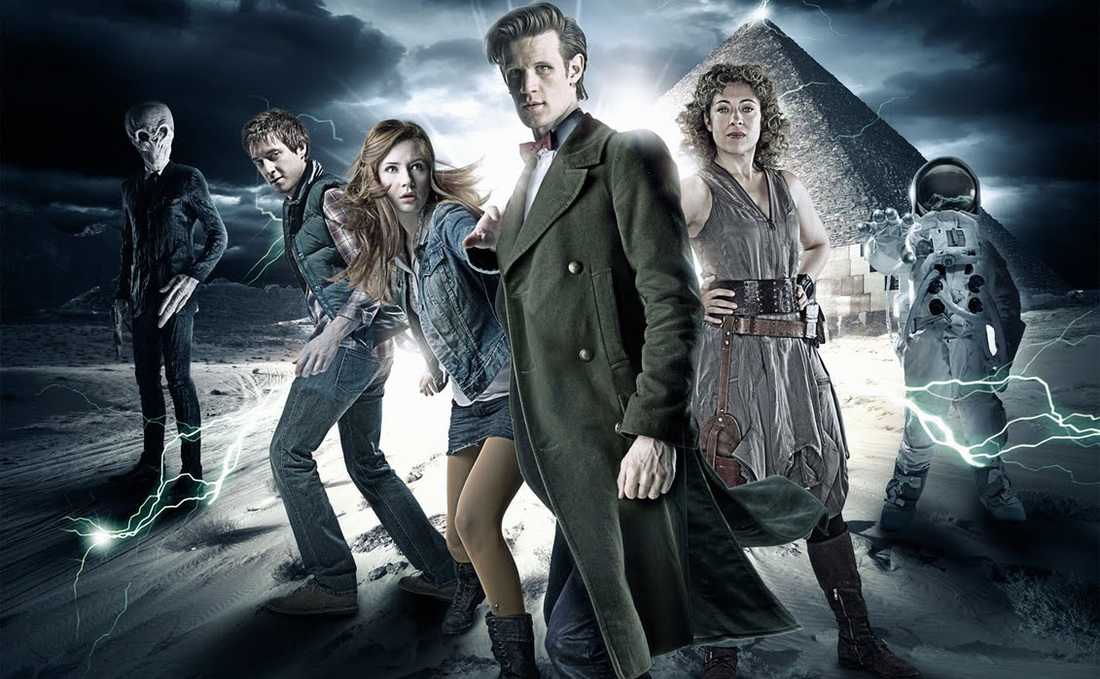
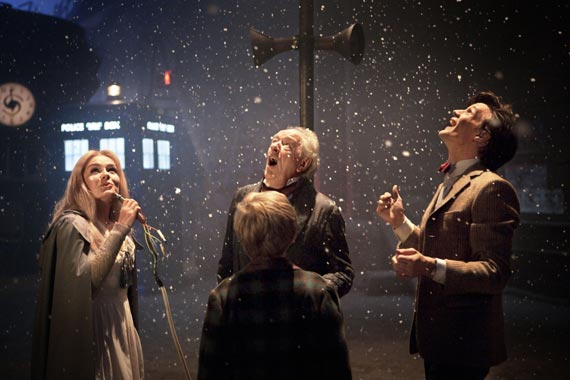

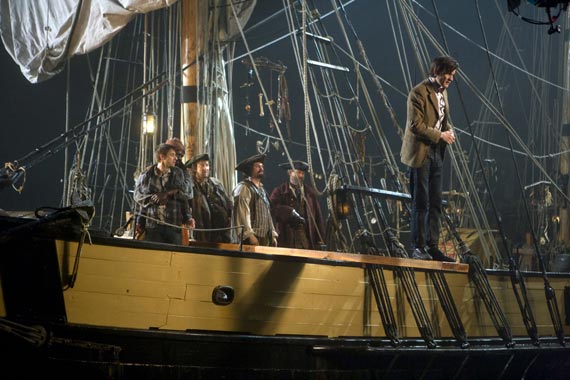
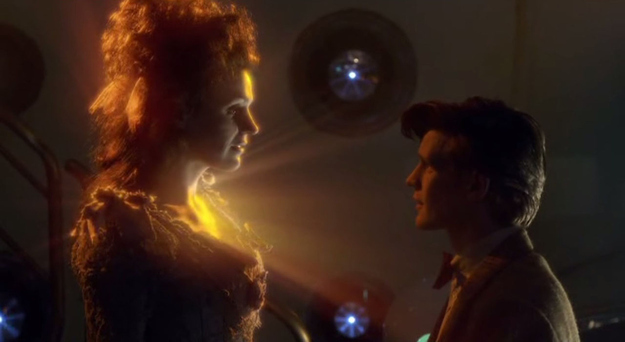
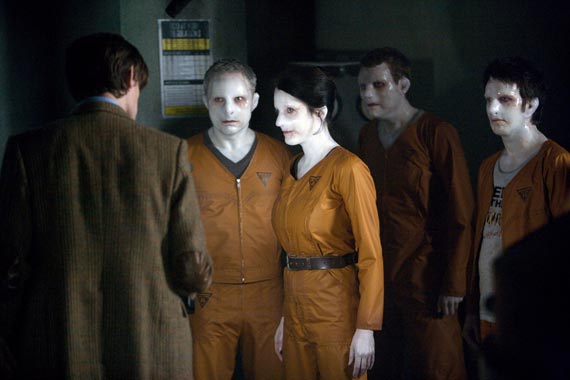
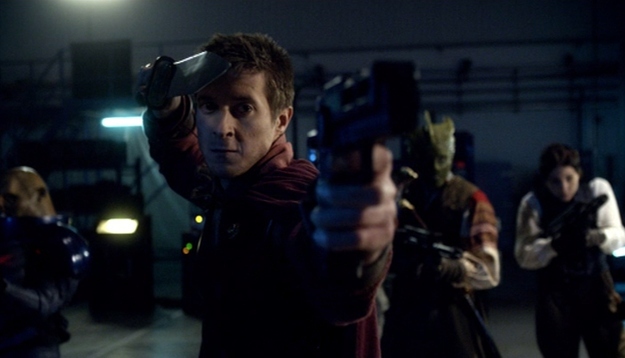
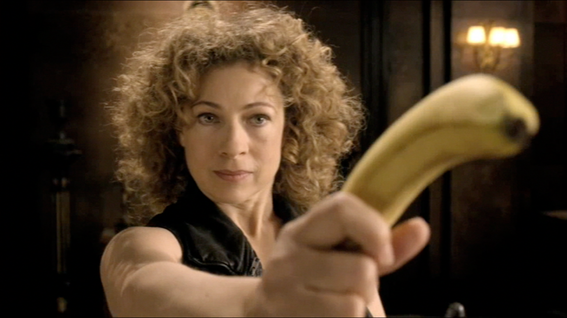
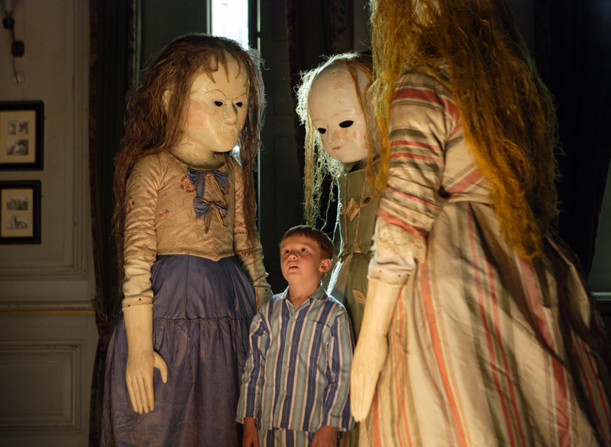
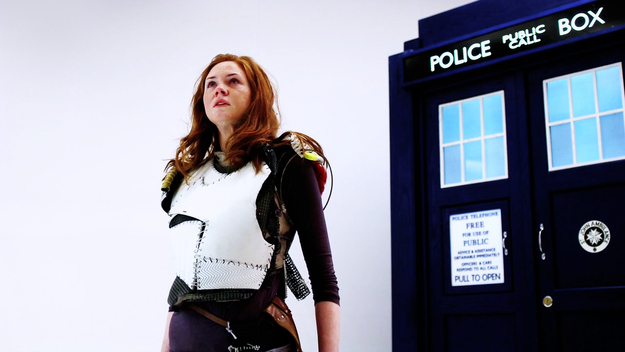
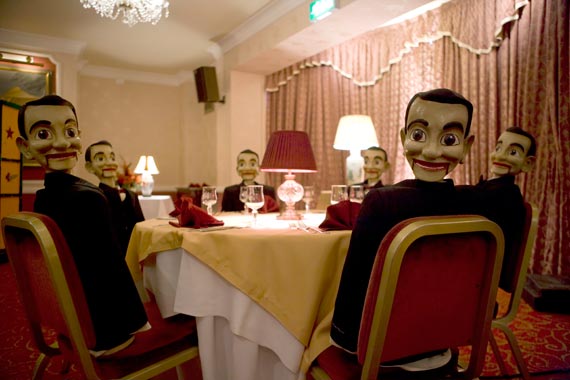
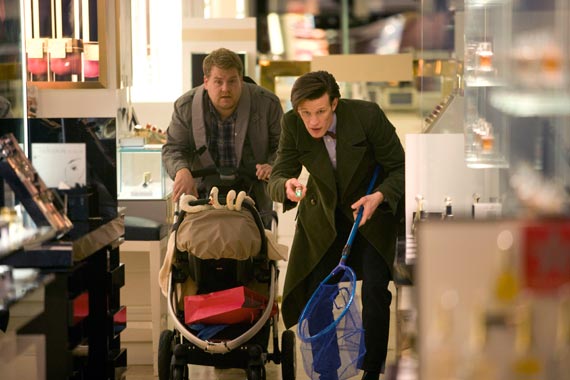
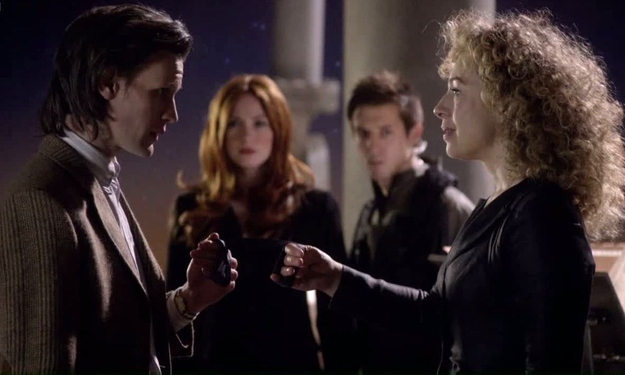
 RSS Feed
RSS Feed
